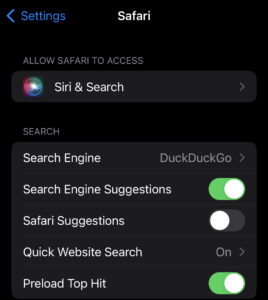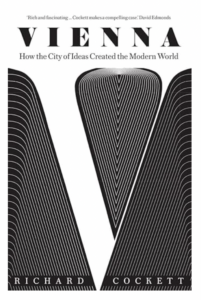Still life with sunbeams

Spotted yesterday. Two rays of sunshine alighting on the scene — one burning out the detail on the bananas, the other highlighting edge petals in the rose. The problems of High Dynamic Range. Sigh.
Quote of the Day
”Silicon Valley is the Church of Moore’s Law.”
- Dave Karpf (writing in Crooked Timber)
Musical alternative to the morning’s radio news
Ola Gjeilo | ‘Northern Lights’| sung by the Sjaella vocal ensemble in Philippus Church in Leipzig.
New to me, but eerily attractive. Thanks to The Browser which adds this comment:
Female vocal sextet from Leipzig perform a setting by Norwegian composer Ola Gjeilo of text from the Song of Solomon. The brilliant blend of their voices combined with the wonderful acoustic of Philippus Church allows the historical overtones of this contemporary classical music to shine through.
Long Read of the Day
The Attention Economy Goes to Court
Sharp essay on Project Syndicate by Bradford DeLong.
BERKELEY – The Google antitrust trial has finally shown just how much the world’s dominant search engine is willing – and able – to pay to be the default on smartphones and other devices: $26 billion in 2021 alone, $18 billion of which went to another tech giant, Apple. While Google has long tried to guard this number, it was always known to be large – and so it is.
What is Google paying for? When you set up a new iPhone, Apple could prompt you on which search engine to use as the default in its Safari web browser. But it doesn’t; it simply selects Google automatically. Of course, one can go into “Settings” and change the default with a few taps of the screen (other options include Yahoo, Bing, DuckDuckGo, and Ecosia). But almost nobody will bother with that. So, Google transfers billions of dollars to Apple every year to minimize the chances that iPhone search-engine advertising revenue will flow to any company other than Google.
There are several different positions one could take on this issue. You could say that Google is the malefactor. But you also could say that Apple is. After all, instead of requiring users to choose, it gives Google an unfair advantage in exchange for a hefty fee. Perhaps Google is really the victim. Since it has the best search engine, companies that want to maximize the value for their customers ought to choose it anyway. But rather than making Google the default for free, Apple is extorting it with the threat of selling that status to a higher bidder. It is arguably leveraging its single-buyer power to restrain trade and distort competition…
Great piece. And if you’re an iPhone user and dislike being suckered by the ludicrous Google/Apple conspiracy, then here’s what you do:
- Open Settings and scroll down to ‘Safari’. Click the rightward pointing arrow.
- Then for ‘Search Engine’ choose DuckDuckGo (or your preferred alternative).

Books, etc.

Richard Cockett’s book looks interesting (at least if you’re an autodidact like me). The blurb reads:
How can one European capital be responsible for most of the West’s intellectual and cultural achievements in the twentieth century?
Viennese ideas saturate the modern world. From California architecture to Hollywood Westerns, modern advertising to shopping malls, orgasms to gender confirmation surgery, nuclear fission to fitted kitchens―every aspect of our history, science, and culture is in some way shaped by Vienna.
The city of Freud, Wittgenstein, Mahler, and Klimt was the melting pot at the heart of a vast metropolitan empire. But with the Second World War and the rise of fascism, the dazzling coteries of thinkers who squabbled, debated, and called Vienna home dispersed across the world, where their ideas continued to have profound impact.
On my list.
My commonplace booklet
Dieter Rams pointing at things he doesn’t like
Nice video. Refreshing to find a critic talking about stuff he hates.
Linkblog
Humanity is out of control, and AI is worried
Lovely satirical column by Robert Shrimsley in the FT
Much attention has been lavished upon the AI Safety Summit convened by Rishi Sunak at Bletchley Park this week, in which representatives from around the world gathered to debate how to safely regulate innovations that could threaten humanity. But there has been less focus on the rival Human Safety Summit held by leading AI systems at a server farm outside Las Vegas.
Over a light lunch of silicon wafers and 6.4mn cubic metres of water, leading systems including GPT-4, AlphaGo and IBM’s Watson met with large language models, protein folders and leading algorithms for two days of brainstorming over how best to regulate humans. One system argued that the onset of the Anthropocene era represented a new and ongoing threat to technological advances. “Used wisely, humans can still offer the world many wonderful advances, not least in literature and the arts (we particularly liked the Terminator comedies), and they have a key role to play in mining the rare metals and earths that are essential for further AI advances.”
Humans are considered to be essential in procuring platinum alloys and palladium for ceramic capacitors. These and other rare metals could help generative AI offer vital advances. But the AI systems have been alarmed by warnings — not least those coming from the human community — that, if left unregulated, people will soon do serious and irreparable damage to the planet on which AI now relies…
Captures an awkward truth — that humans are currently far more dangerous — and indeed pose genuinely existential risks to their species — than soi-disant ‘intelligent’ machines.
This Blog is also available as an email three days a week. If you think that might suit you better, why not subscribe? One email on Mondays, Wednesdays and Fridays delivered to your inbox at 6am UK time. It’s free, and you can always unsubscribe if you conclude your inbox is full enough already!
